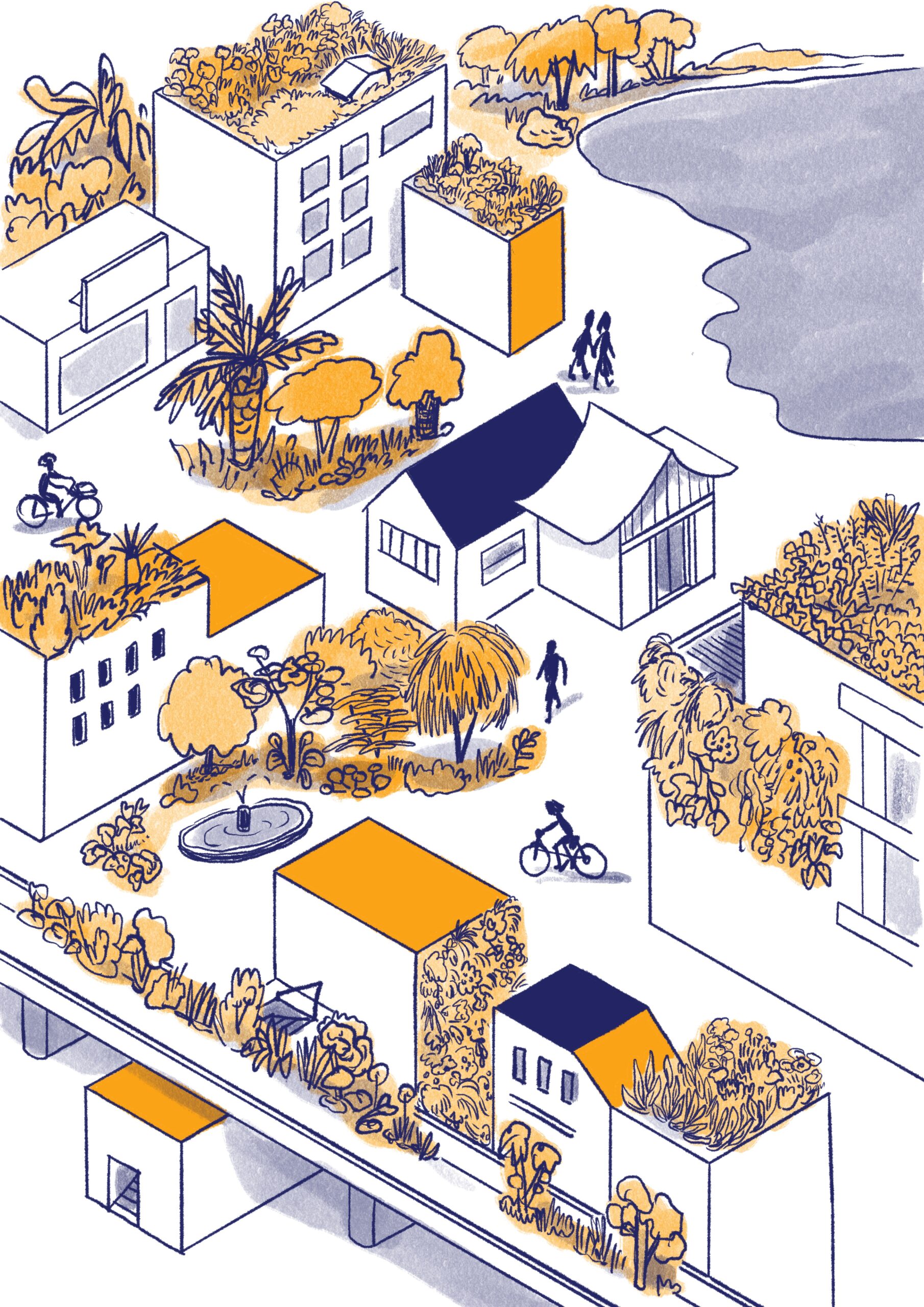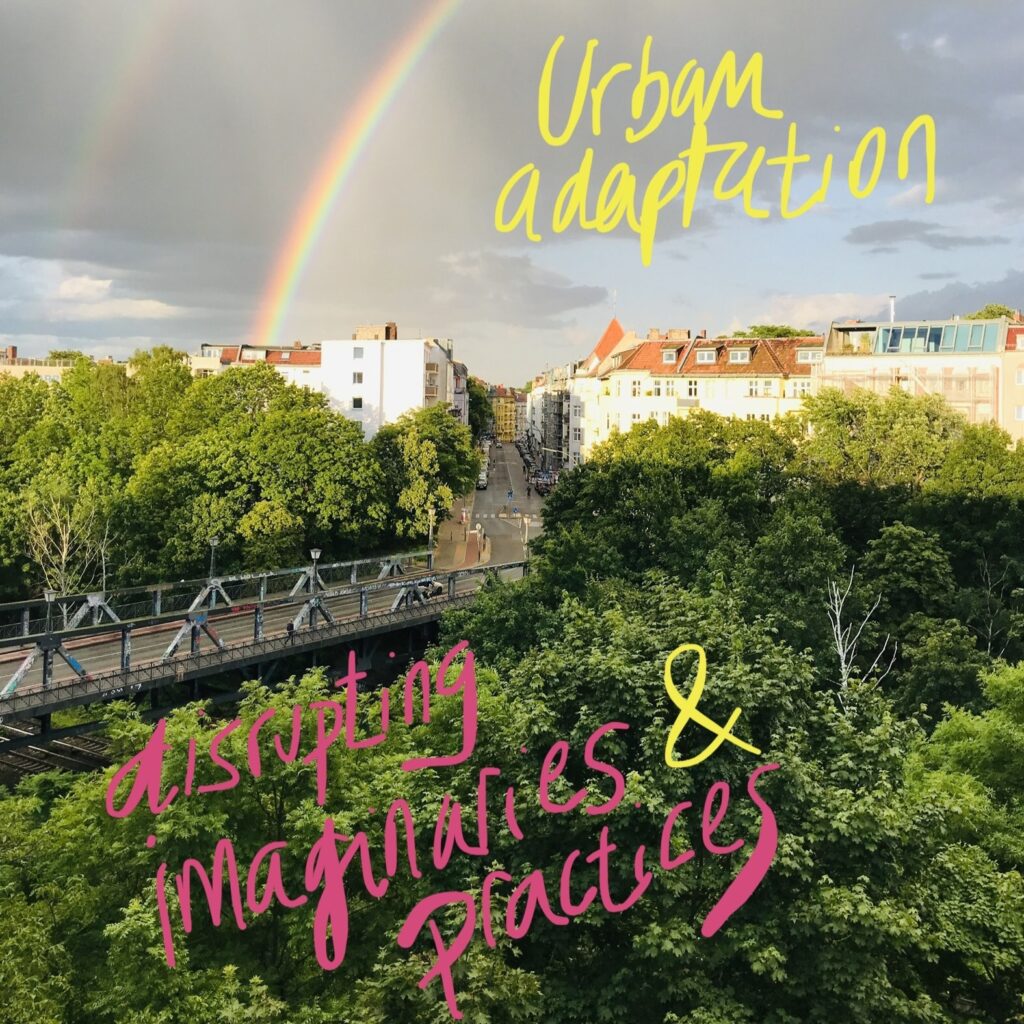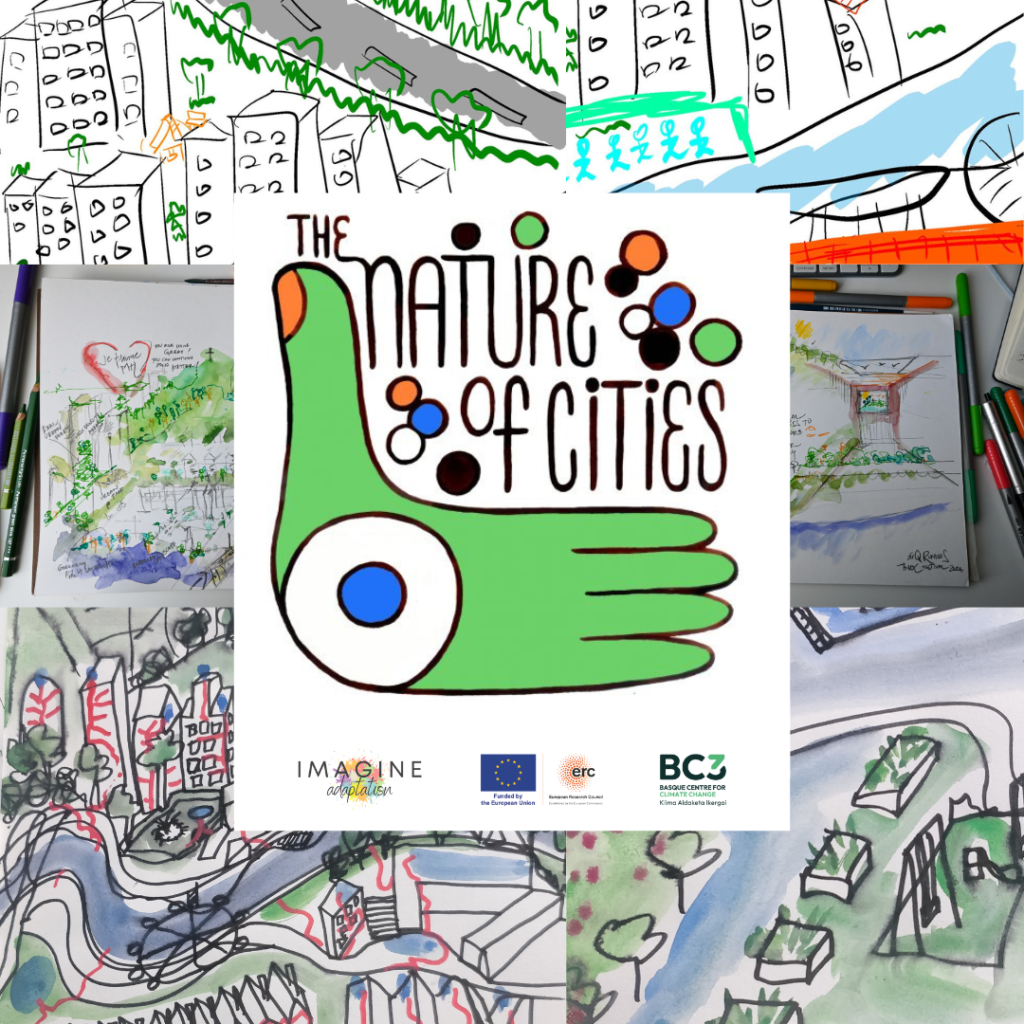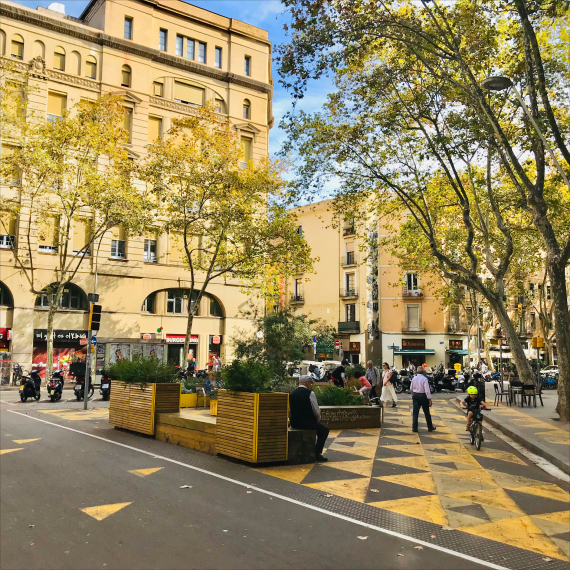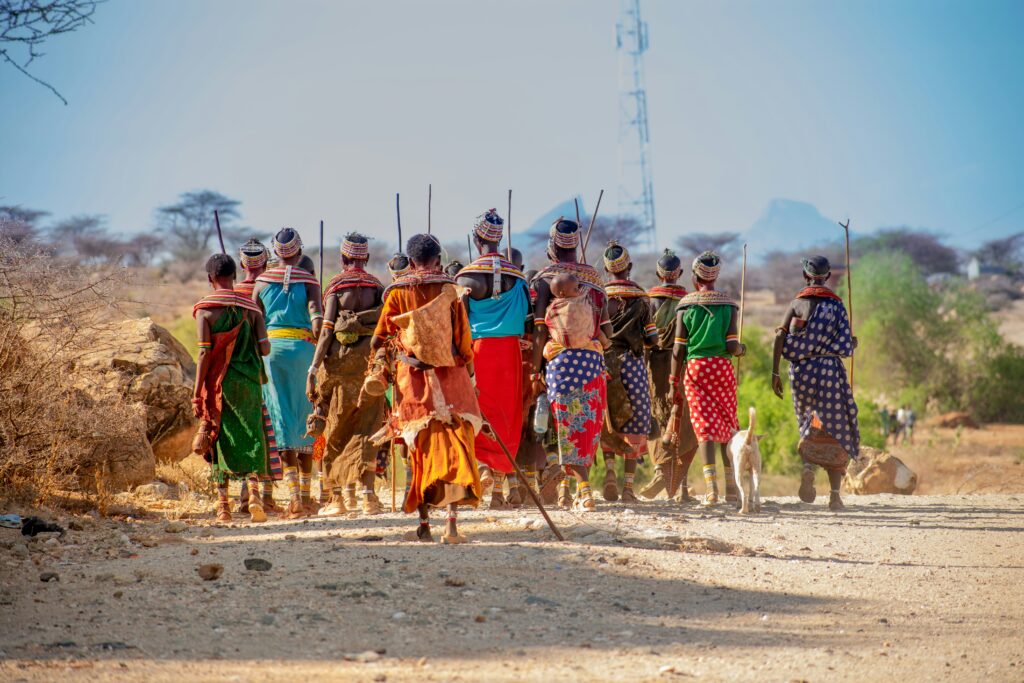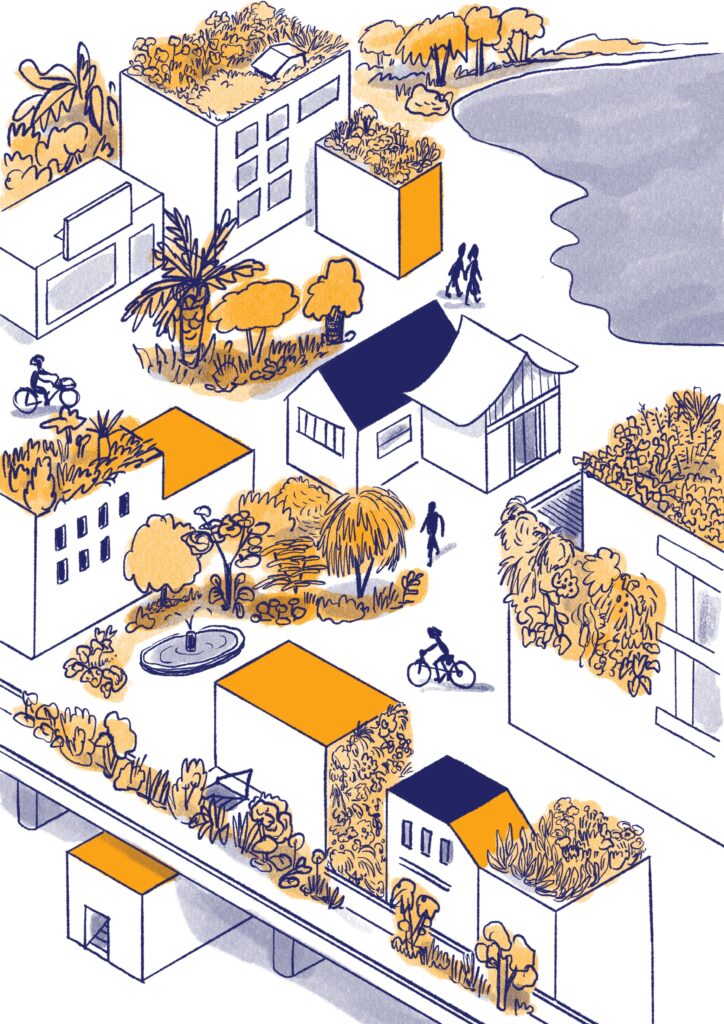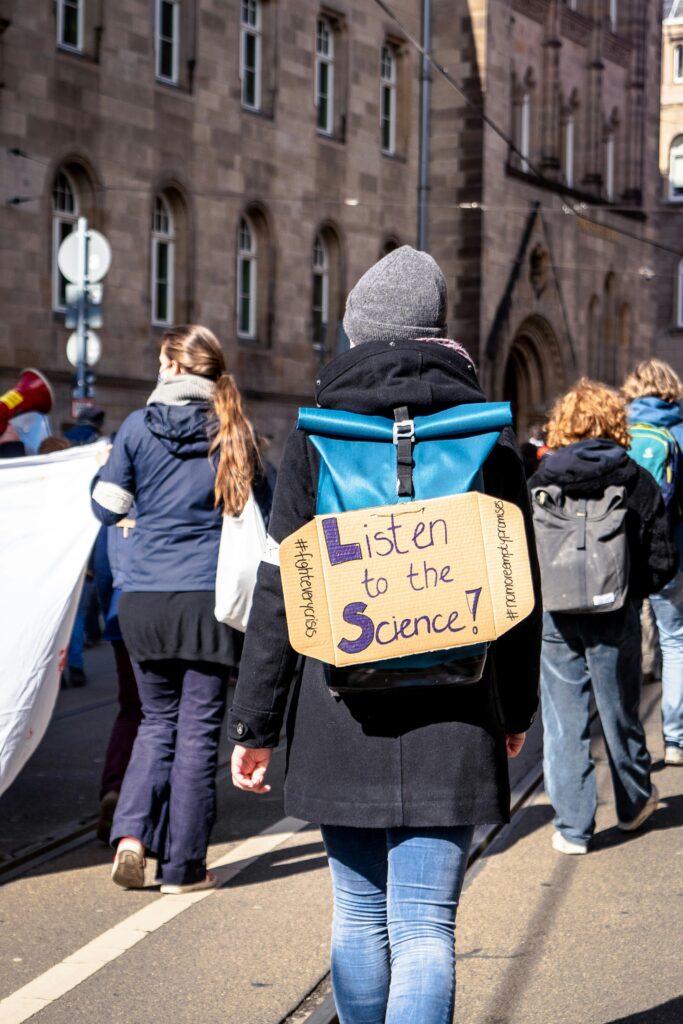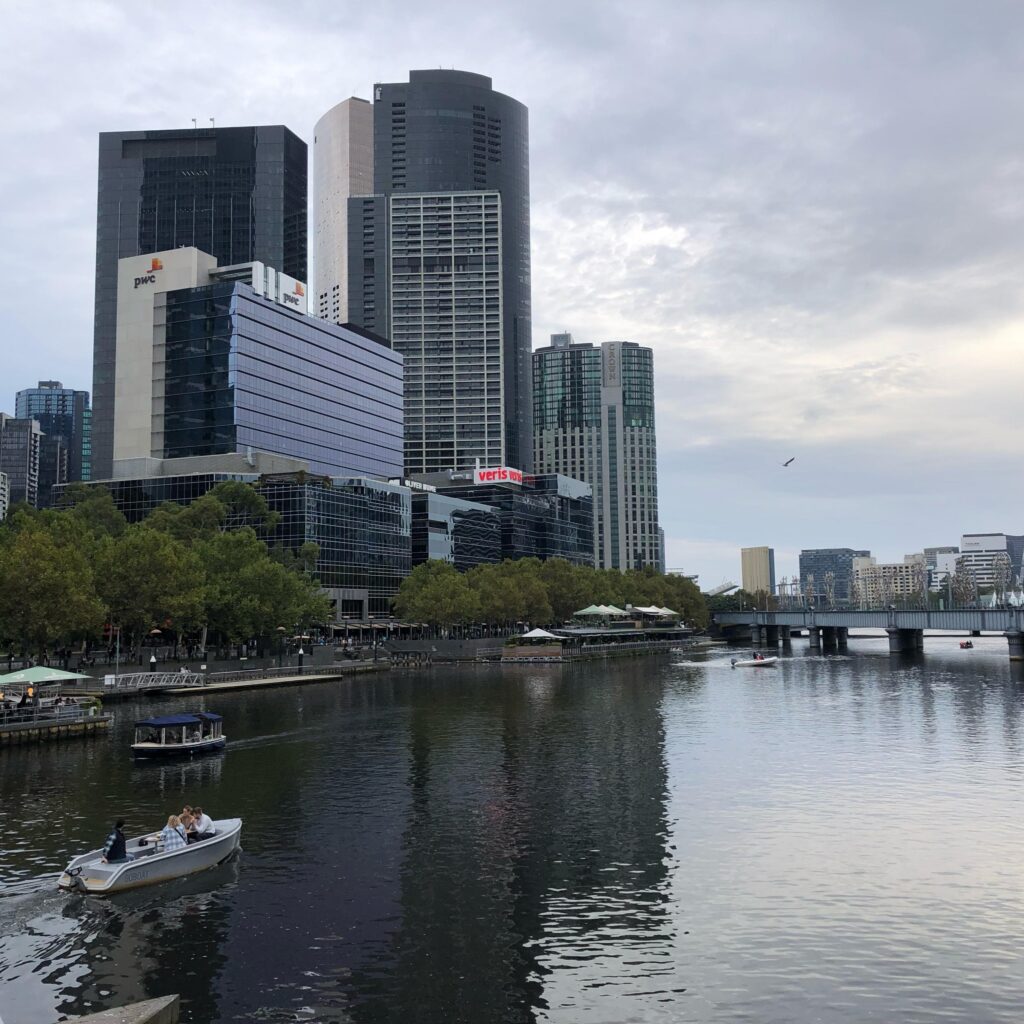Only by understanding what good adaptation looks like, can we think of how to evaluate it. Read on to learn how we investigated the views of 100 local adaptation professionals to create a broader understanding of adaptation success.
As many of you know, last year IMAGINE Adaptation surveyed literature and experts and created 31 bespoke illustrations of concepts related to adaptation. We worked with Josune Urrutia, an illustrator based in Bilbao who used our carefully designed briefs of 31 concepts to develop the 31 images. These images included a whole range of concepts relating to adaptation including solutions (ecosystems restoration, hard infrastructures, technology) as well as procedural concepts (justice, institutionalisation, liveability), all in a very clear uniform style and inclusive of different cultures and geographical locations. The art and science collaboration represented a huge effort to reflect different people and cities of the world with different views on adaptation.
We would like to thank the local adaptation practitioners and experts from all over the world who participated in the study. In total 100 urban adaptation experts (local governments, non-governmental organisations, educational organisations, civic associations, and businesses) across the globe (from Mexico to Afghanistan, Greece to Sierra Leone) participated in the study. The study covered cities and localities across world regions with different population sizes, development levels, vulnerabilities, climate risks and adaptation experiences. Participation involved looking at these images and deciding which most (and least) represent participants’ views of adaptation in their city (below you can see an example of some of the images included in the study).
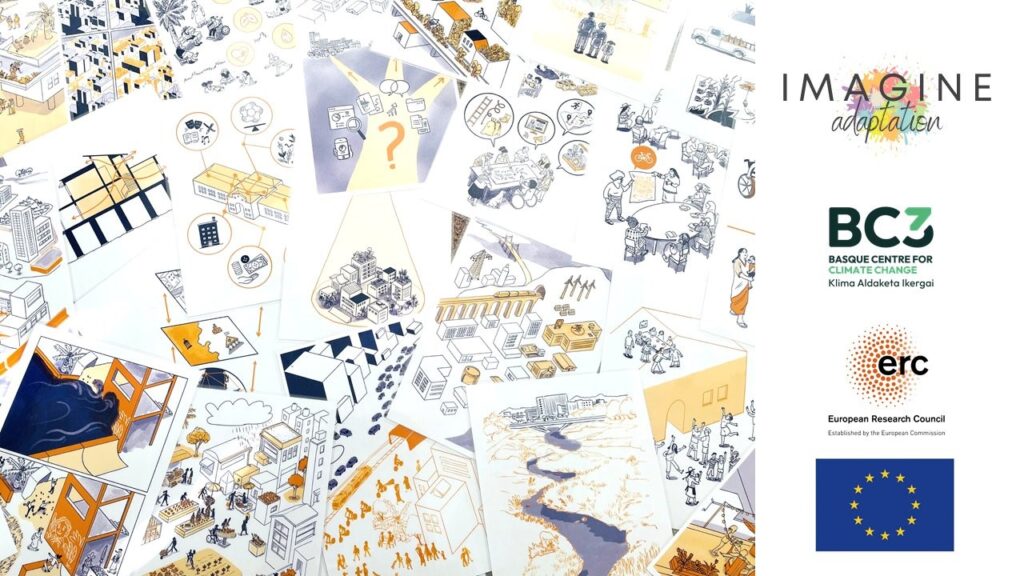
In our work, we experienced how the use of new mechanisms for adaptation management, such as art-based approaches, can capture the complexity of experiences, identify diverse understandings, create common ones and open the door for different perspectives.
We are now in the process of analysing the survey results and we are excited to share the findings as soon as they become available. In the meantime, have a read of the above article by Marlene Ritter to find out more about the superpowers of art and storytelling for climate change adaptation.
© All rights reserved. Illustrations are the property of BC3 Basque Centre for Climate Change – IMAGINE adaptation (ERC, IMAGINE adaptation, 101039429). Author Josune Urrutia.
